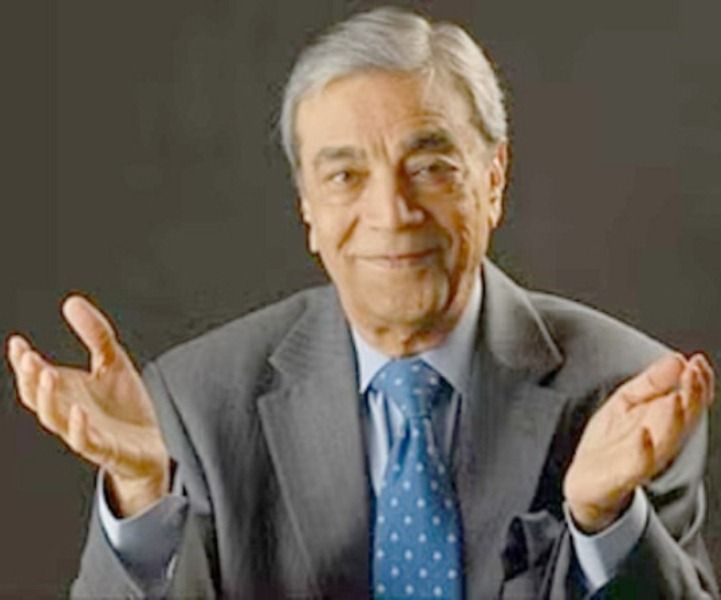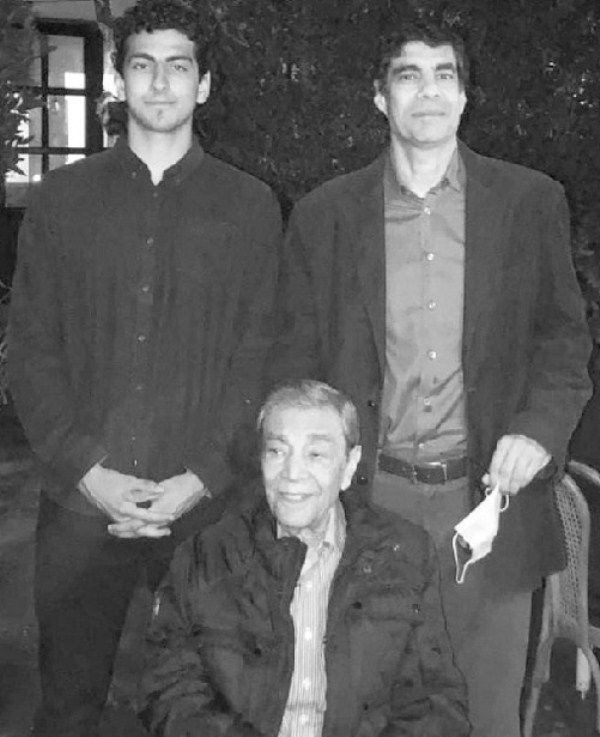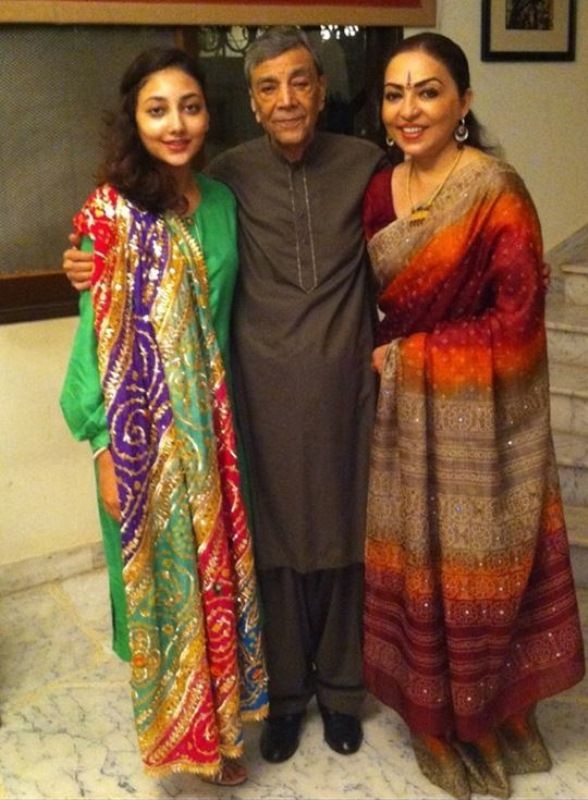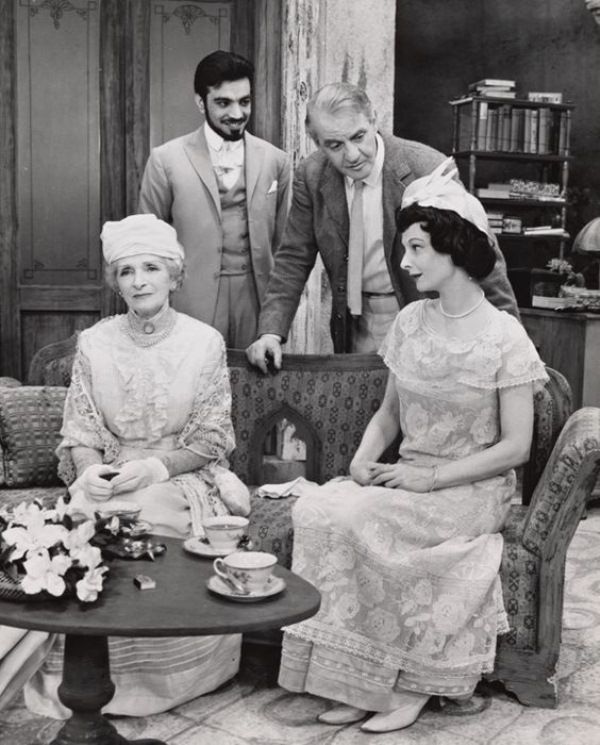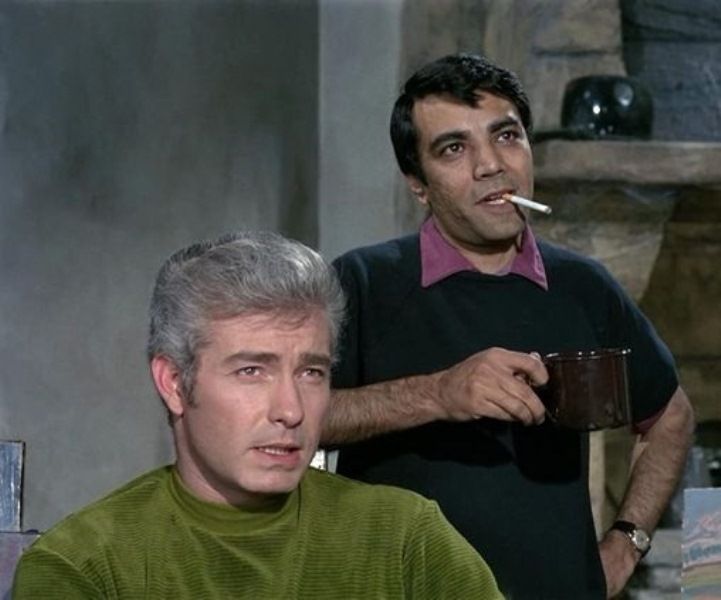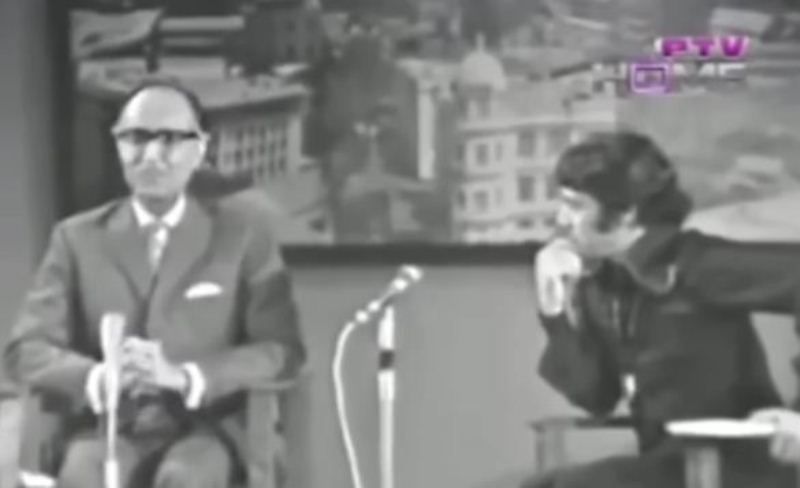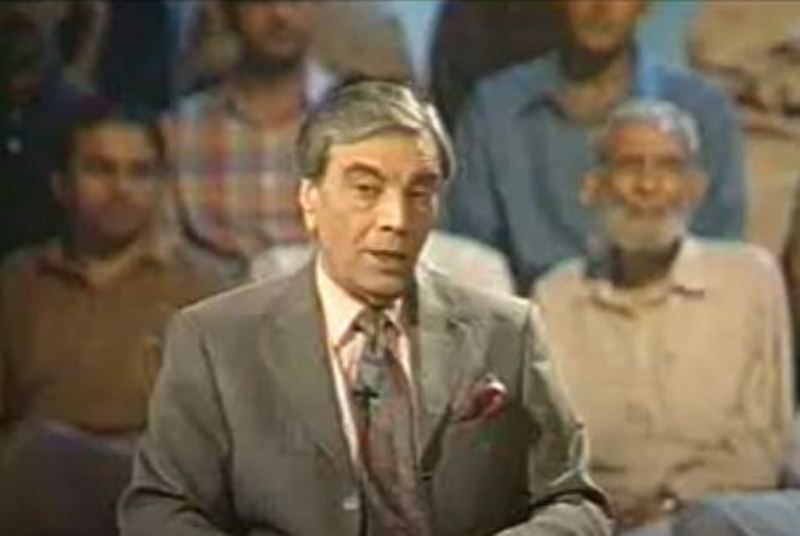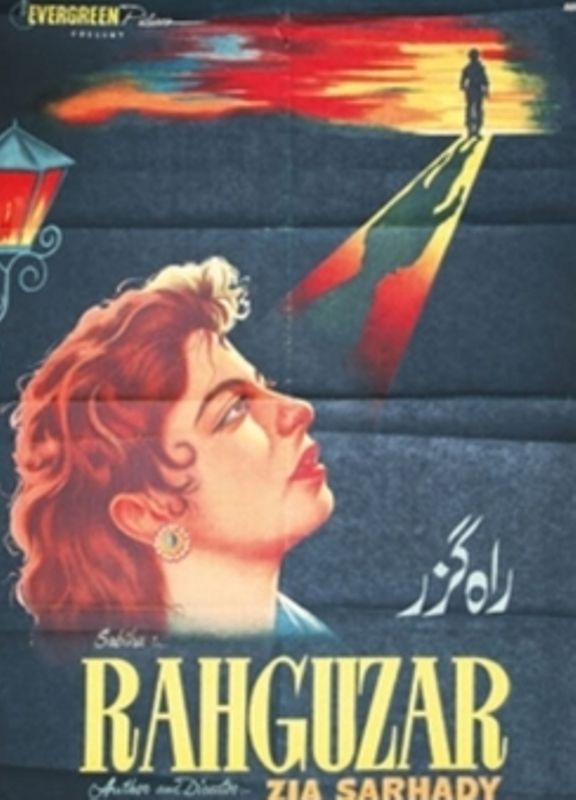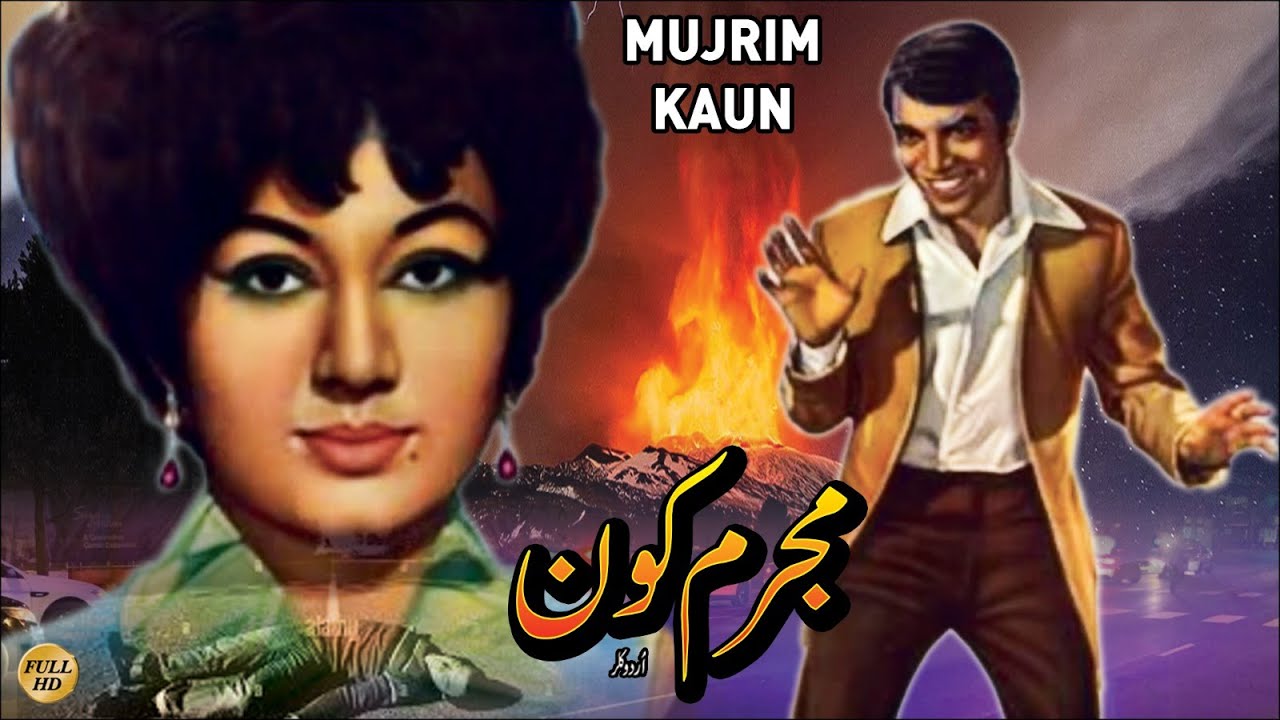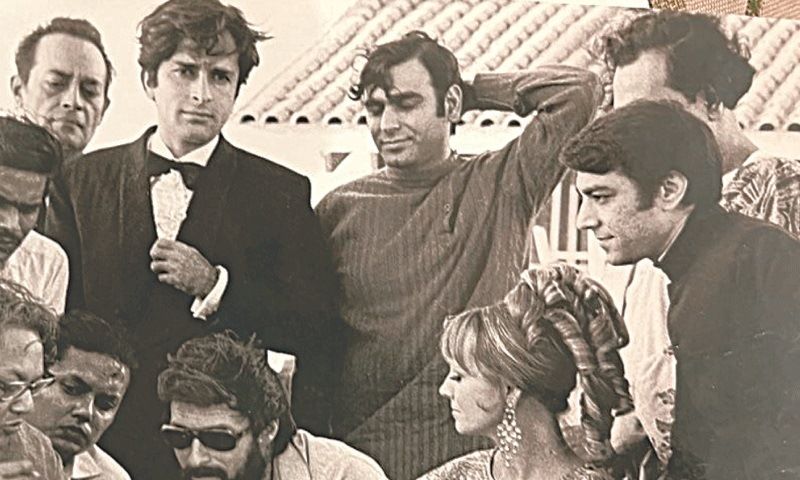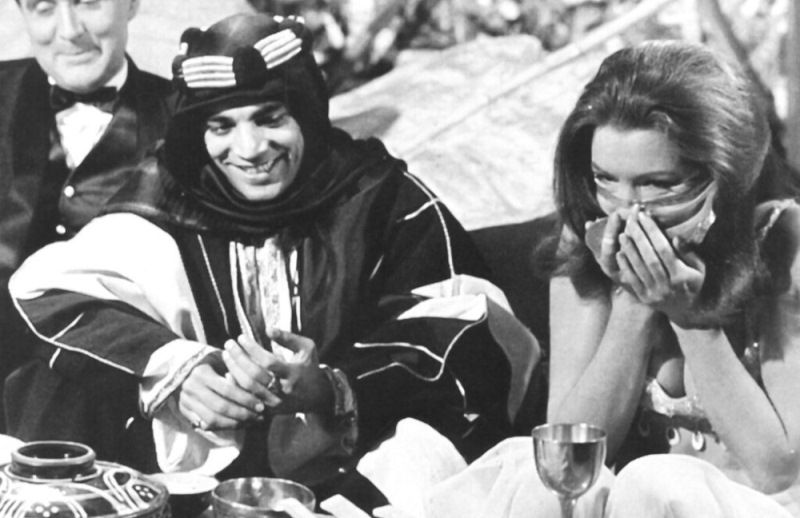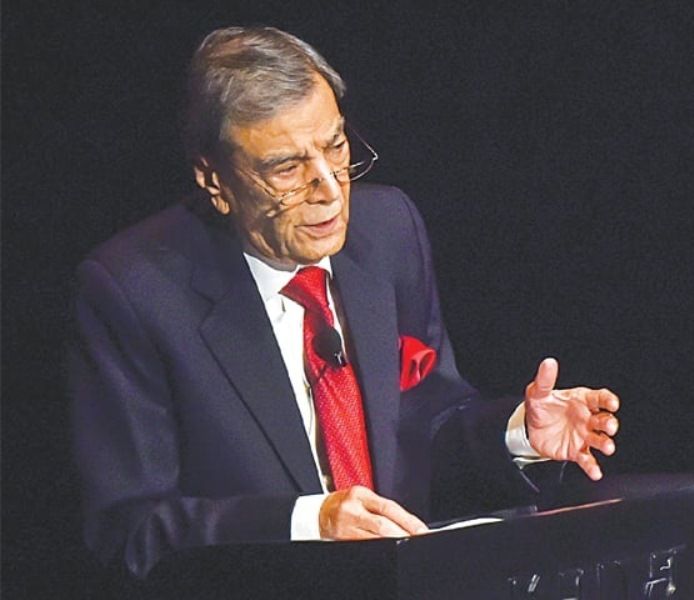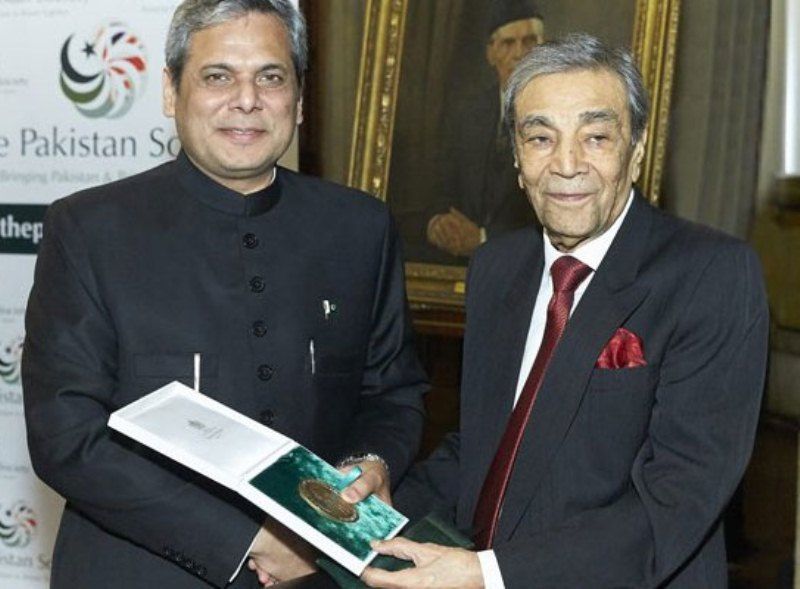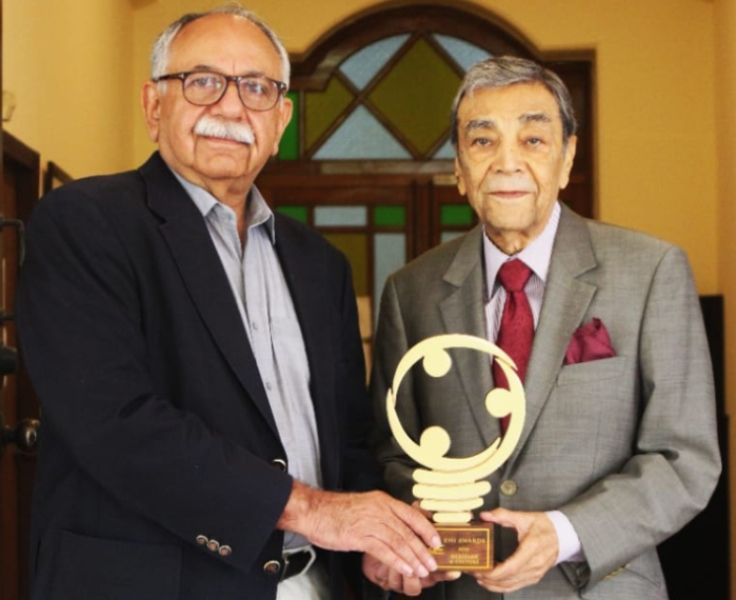Zia Mohyeddin was a British-Pakistani actor, director, producer, and television broadcaster. He is known for his unique style of reciting Urdu verses and prose. He was the first from Pakistan to be featured in Hollywood films. On 13 February 2023, he left the world after suffering from a chronic disease at the age of 91 years.
Contents
Wiki/Biography
Zia Mohyeddin (1933-2023) was born on Saturday, 20 June 1933 (age 89 years; at the time of death) in Lyallpur, British India (now Faisalabad in Pakistan). [1]Frontline He attended the Central Training College Dramatic Club in Lahore. He did his graduation from the Government College Lahore in 1949. After that, in the early 1950s, he quit his master’s in psychology to go to Australia to observe broadcasting methods there on a Frequent Fellowship Broadcasting, which was offered by the Colombo Plan. In 1953, he joined the Royal Academy of Dramatic Art in London, where he pursued another bachelor’s degree.
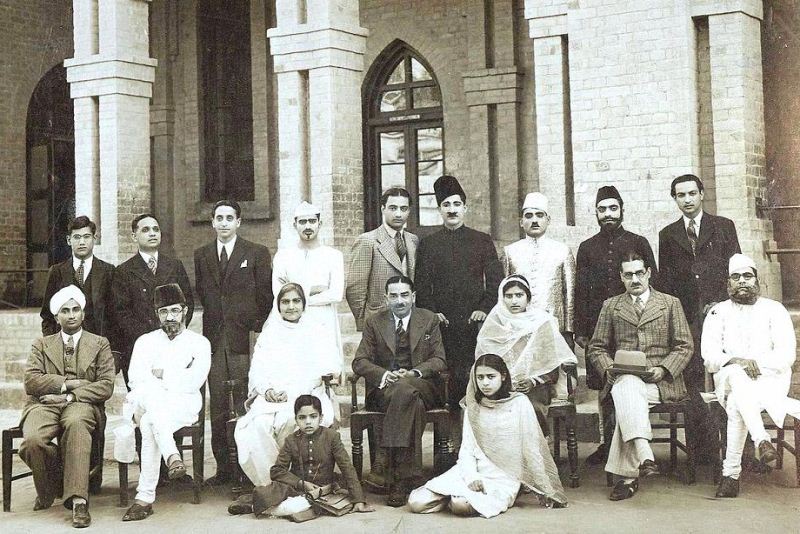
Zia Mohyeddin at the age of 7 (on the floor, left) with the Central Training College Dramatic Club, Lahore
Physical Appearance
Height (approx.): 5′ 9″
Hair Colour: Salt & Pepper
Eye Colour: Black
Family
He belongs to an Urdu-speaking family in Rohtak, East Punjab, British India (now in Haryana, India).
Parents & Siblings
His father, Khadim Mohyeddin, was a mathematician, musicologist, playwright, and lyricist. He had five elder sisters. His sister Razia Ishaq is a poet, who is living in Indianapolis.
Wife & Children
Zia Mohyeddin was married thrice. His first wife’s name is Sarwar Zemani, with whom he had two sons named Minos Ameer and Risha Ameen.
His second wife’s name is Nahid Siddiqui, she is a Kathak dancer. The couple got married in 1973 and parted ways in 1991. With her second wife, he had a son named Hassan “Moyo” Mohyeddin, who is a percussionist and music producer. His third wife’s name is Azra Mohyeddin, a Pakistani singer and actress, who was thirty years younger than him. They got married in 1994, and with his third wife, he had a daughter named Aaliya Mohyeddin, who was born in 2002.
Other Relatives
Daud Rahbar, who was a writer, poet, musician, and thinker, was his cousin. He was the translator of Ghalib’s Persian letters.
Career
Theatrical Production/Play
Zia Mohyeddin started his career by working in theatrical production in various capacities when he was in London. His performance in the theatre play “Long Day’s Journey into Night” and “Julius Caesar” received a huge acclamation from the audience, which ultimately led him to make his debut in West End with the play “A Passage to India” (based on the novel written by E. M. Foster) at the Comedy Theatre which he performed from 20 April 1960-3 December 1960, and the play later ran for 302 performances.
In 1984, he played the role of Munshi Abdul Karim, in the television play “The Empress and the Munshi,” which revolves around Queen Victoria and her young Indian servant and Urdu teacher, Abdul Karim, one of her favourites who later faced the rage, fury, and resentment of her family. Mohyeddin received a huge acclamation for his performance in the play and later it was considered that the role was meant to be played by him only.
Television
British Television Shows
Zia Mohyeddin has appeared in various British television dramas. In 1962, he appeared in the episode “Visit to Spain” from the television series ‘The Adventures of Sir Francis Drake.’ In 1966, he played the role of Prince Ali in the episode “Honey for the Prince” from the television series ‘The Avengers.’ In the episode “Night Flight to Andorra” from the television series ‘Main in a Suitcase’ he played the role of Rafael.
His performance in the British drama documentary “Death of a Princess” (1980) in which he played the role of Marwan Shaheen received a huge acclamation from the audience. Some other British television series in which he appeared include ‘Adam Adamant Lives!’ (1967), ‘Jackanory’ (1967), ‘Gangsters’ (1978), ‘Minder’ (1980), and ‘Family Pride’ (1991-1992).
Pakistani Television Shows
In 1969, he started the first television talk show in Pakistan “The Zia Mohyeddin Show” which later became very famous and ran till 1973. His catchphrase “zara theka lagaiye” with which he began the rap-style song segment in the show became the trademark of his show.
Some of the Pakistani television shows presented by Zia Mohyeddin include ‘Payal,’ ‘Chacha Chhakkan,’ ‘Zia Ke Saath,’ and ‘Jo Jany Wo Jeetey.’
Film
Zia Mohyeddin made his film debut with the Pakistani film ‘Rahguzar’ in 1960.
In 1971, he appeared in another Pakistani film “Mujrim Kaun” which didn’t run well at the box office.
In 1970, he made his Bollywood debut with the film “Bombay Talkie” starring Shashi Kapoor.
He made his Hollywood debut in 1962 with the British film “Lawrence of Arabia” directed by David Lean. Mohyeddin played the role of Tafas, an Arab guide in the film. He later wrote an essay “Peter O’Toole” in which he described his experience during the shoot of the film in Jordan. The film won seven Oscars at the 1963 Academy Awards. [2]Arab News
Some other films in which Zia Mohyeddin appeared include ‘Sammy Going South’ (1963), ‘Behold a Pale Horse’ (1964), ‘Khartoum’ (1966), ‘The Sailor from Gibraltar’ (1967), ‘Work is a Four-Letter Word’ (1968), ‘Partition’ (1987) and ‘Immaculate Conception’ (1992).
Books
He wrote his first book “A Carrot is a Carrot: Memories and Reflections” which was published by Ushba Publishing in Karachi in 2008. In 2012, he wrote his second book “Theatrics, National Academy of Performing Arts, which was published in Karachi. Zia Mohyeddin was well acquainted with the cultures of the West and the Asian subcontinent and wrote about the literary works and traditions of both regions in his essays. His book “The God of My Idolatry: Memories and Reflections” is a collection of essays in which he mentioned his career and Western literature, film, and theatre. He has also discussed famous writers such as Harold Pinter, Samuel Beckett, W.H. Auden, Virginia Woolf, Edna O’Brien, W.B. Yeats, and Moniza Alvi in this book. In his essay ‘Libation’ from the book, Mohyeddin compares the plays written by Greek philosophers like Aeschylus, Sophocles, and Euripides and called Greek tragedy as “one of the greatest legacies that the Western world has inherited in the sphere of literature.” In his work “A Seedbed for Ideas,” Mohyeddin compares the great awareness and changes that have been brought into the theatrical traditions of both regions. He also discussed about the stereotyped European notions of dark-skinned turbaned men or “the noble savage” in a historical and contemporary context in his essay ‘The Malignant and Turban’d Turk.’ Citing the example of Shakespeare’s play “Othello,” he discussed the racial politics in Western countries /America. He emphasises how the British and American audiences were “happy to accept a black Othello on stage as long as it was a white man (using burnt cork to imitate a Negroid complexion)” over centuries. Further in the essay, he cited an incident in 1833, when a black American actor, Ira Aldridge, who played the role of Othello, was considered an insult to Ellen Terry who played the role of Desdemona in the play. [3]Dawn
Oratory & Recitation
He is known for his unique style of reciting Urdu poetry and prose. His voice, flawless diction, intonation, and pronunciation had a unique craze among his audience. He was also a debater at GC. He used to recite the literary works of Urdu poets ranging from the classics like Mir Taqi Mir, Nazir Akbarabadi, Momin, and Ghalib, to the moderns such as Jigar Moradabadi, Josh Malihabadi, Firaq Gorakhpuri, Faiz Ahmed Faiz, and Noon Meem Rashid (also known as Meerajee). Apart from reciting literary works, he also used to record audiobooks. In 2002, he recorded the English version of the book “Haroon and the Sea of Stories” written by Salman Rushdie. Zia Mohyeddin used to recite the poem written by the great poet Faiz Ahmed Faiz in an annual show “Zia Mohyeddin ke saath aik sham” in Lahore on 31 December every year. The tradition of the annual show was started by his nephew Naveed ‘Bobby’ Riaz in 1986, which was interrupted in 2019 and 2020 during the pandemic of COVID-19. [4]The Wire
Awards, Honours, Achievements
- Zia Mohyeddin was presented with the Sitara-i-Imtiaz (Star of Excellence) Award by the Government of Pakistan in 2003.
- He was honoured with the Hilal-i-Imtiaz (Crescent of Excellence) Award by the President of Pakistan in 2012.
- On 29 November 2017, the Lifetime Achievement Award was presented to him by the Pakistani community living in Dubai. The award was given to him by the Pakistan Ambassador in United Arab Emirates (UAE).
- In 2019, he was presented with the Pakistan Society’s inaugural Jinnah Medal at the Pakistan Society’s 66th Annual Dinner held at the Lincoln’s Inn in London.
- In 2021, Mohyeddin won the 1st prize in the Karachi Electric KHI Awards for the Heritage & Culture category.
Death
Zia Mohyeddin passed away on 13 February 2023 at the age of 89, after suffering from a chronicle disease.
Facts/Trivia
- In an interview, Zia revealed that he wanted to become an actor since childhood and he performed for the first time on stage when he was 11 years old. While talking about this in the interview, he said,
It would be foolish of me to say that my acting career began on the stage in a play, written by my father, at the age of 11.”
- After completing his graduation from the Royal Academy of Dramatic Art, Zia Mohyeddin started working at Radio Pakistan and later joined Radio Australia.
- In 1965, he performed the play “A Passage to India” at the BBC television production and played one of the leading roles as Dr Aziz, which brought a change in Western theatre and film because at that time South Asians were not given leading roles in mainstream productions in the West.
- After his performance in the play, “A Passage to India” at the BBC television production in 1965, the writer E.M. Foster got impressed with him and later the two become good friends. Once, Foster asked Mohyeddin not to address him as “Sir” and address him by his first name, to which Mohyeddin replied,
I can’t Sir, I’d feel embarrassed but if you would allow me to I’d be happy to call you Morgan sahib.”
- In an interview, Mohyeddin was asked when he was in Birmingham whether he missed Pakistan or not, to which he replied that though he missed Pakistan as he has his friends and family there, he doesn’t miss Pakistan professionally. He said,
No, I don’t miss Pakistan professionally; there wasn’t very much left when I left. If I had stayed I would have been finished by now. There’s no respect, no encouragement, no consideration. You talk of the Muslim contribution to music and also call musicians ‘meerasis.’ “
- In February 2005, he was appointed as the director of the National Academy of Performing Arts in Karachi by the then-president of Pakistan Pervez Musharraf.
- Zia Mohyeddin has an armchair with angular lighting in his study room where he used to sit and enjoy his cigarettes.

